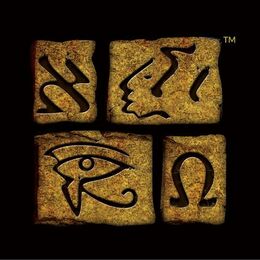
FAIR is a non-profit organization dedicated to providing well-documented answers to criticisms of the doctrine, practice, and history of The Church of Jesus Christ of Latter-day Saints.
DavidSmith (talk | contribs) (Created page with "{{Main Page}} {{Navigation Book of Mormon}} <onlyinclude> {{Header}} </onlyinclude> <h5 style="color:white">Descriptions of the gold plates</h5> {{:Book of Mormon/Translatio...") |
m (→top: BOT: change ((Navigation BoM}} to {{Navigation:Book of Mormon}}, replaced: {{Navigation Book of Mormon}} → {{Navigation:Book of Mormon}}) |
||
| (3 intermediate revisions by one other user not shown) | |||
| Line 1: | Line 1: | ||
{{Main Page}} | {{Main Page}} | ||
{{Navigation Book of Mormon}} | {{Navigation:Book of Mormon}} | ||
<onlyinclude> | <onlyinclude> | ||
| Line 6: | Line 6: | ||
</onlyinclude> | </onlyinclude> | ||
{{:Question: Why were the gold plates needed at all if they weren't used directly during the translation process?}} | {{:Question: Why were the gold plates needed at all if they weren't used directly during the translation process?}} | ||
{{:Question: Can the Book of Mormon be considered a genuine translation if the plates weren’t even used during the translation process?}} | |||

Much is made of the fact that Joseph used a seer stone, which he placed in a hat, to dictate the text of the Book of Mormon without viewing the plates directly. [1]

Some witness accounts suggest that Joseph was able to translate while the plates were covered, or when they were not even in the same room with him. [2] Therefore, if the plates themselves were not being used during the translation process, why was it necessary to have plates at all?
Joseph did not need the plates physically present to translate, since the translation was done by revelation. The existence of the plates was vital, however, to demonstrate that the story he was translating was literally true.
If there had been no plates, and Joseph had simply received the entire Book of Mormon through revelation, there would have been no Anthon visit, nor would there have been any witnesses. The very fact that plates existed served a greater purpose, even if they were not directly viewed during all of the translation process.
The plates served a variety of purposes.
The plates' existence as material artifacts eliminated the possibility that Joseph was simply honestly mistaken. Either Joseph was knowingly perpetuating a fraud, or he was a genuine prophet.
Furthermore, the existence of actual plates eliminates the idea that the Book of Mormon was "spiritually true," but fictional. There is a great difference between an allegorical or moral fiction about Nephites, and real, literal Nephites who saw a literal Christ who was literally resurrected.
It is claimed by some that the Book of Mormon can never be viewed as any translation of an ancient record.
Without the plates present, it is obviously impossible to physically verify if the Book of Mormon translation is “correct”. A part of a Mormon theology that is important to keep in mind informs us that the plates will be returned one day before the Second Coming so that a sealed portion of the plates might be translated.
According to the October 2011 New Era:
When Moroni was finishing the Book of Mormon record, he was commanded to seal up some of the plates, and Joseph Smith was later commanded not to translate them. This sealed portion contains the complete record of the vision of the brother of Jared (see Ether 4:4–5). This vision included “all things from the foundation of the world unto the end thereof” (2 Nephi 27:10–11; see also Ether 3:25). So basically the Lord revealed to the brother of Jared the history of mankind, and the sealed portion of the plates was Moroni’s translated copy of it.
Few people have seen the sealed record—for instance, the Nephites in the land Bountiful at the Savior’s coming (see Ether 4:1–2) and Moroni (see Ether 12:24). The Lord said the sealed portion would be revealed to the world “in mine own due time” (Ether 3:27). He also said it would “not go forth unto the Gentiles until the day that they shall repent of their iniquity, and become clean before the Lord” (Ether 4:6; see also 2 Nephi 27:8).
According to Joseph Smith’s associates who saw the golden plates, anywhere from half to two-thirds of all the plates were in the sealed portion (see Kirk B. Henrichsen, “What Did the Golden Plates Look Like?” New Era, July 2007, 31). [3]
When the plates are returned, the reality of the plates will be attested to and we can certainly verify the translation that came therefrom. The translation of the plates by the hat and the interpreters/seer stone may be viewed as an attempt by God to speak to men “in their weakness, according to their language” and as a means to an end—a means by which a work could commence to prepare for greater things that would be done as the world drew closer to the second coming of the Savior Jesus Christ.

FAIR is a non-profit organization dedicated to providing well-documented answers to criticisms of the doctrine, practice, and history of The Church of Jesus Christ of Latter-day Saints.
We are a volunteer organization. We invite you to give back.
Donate Now